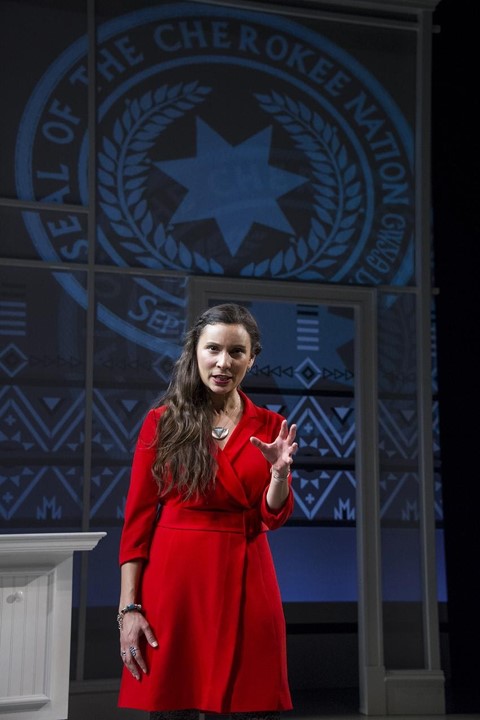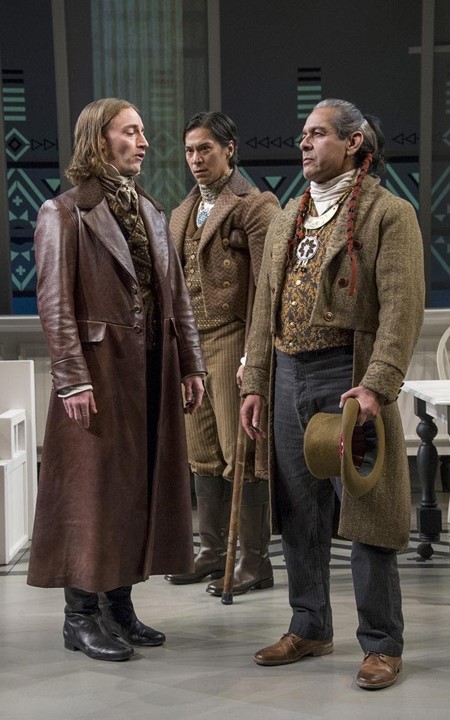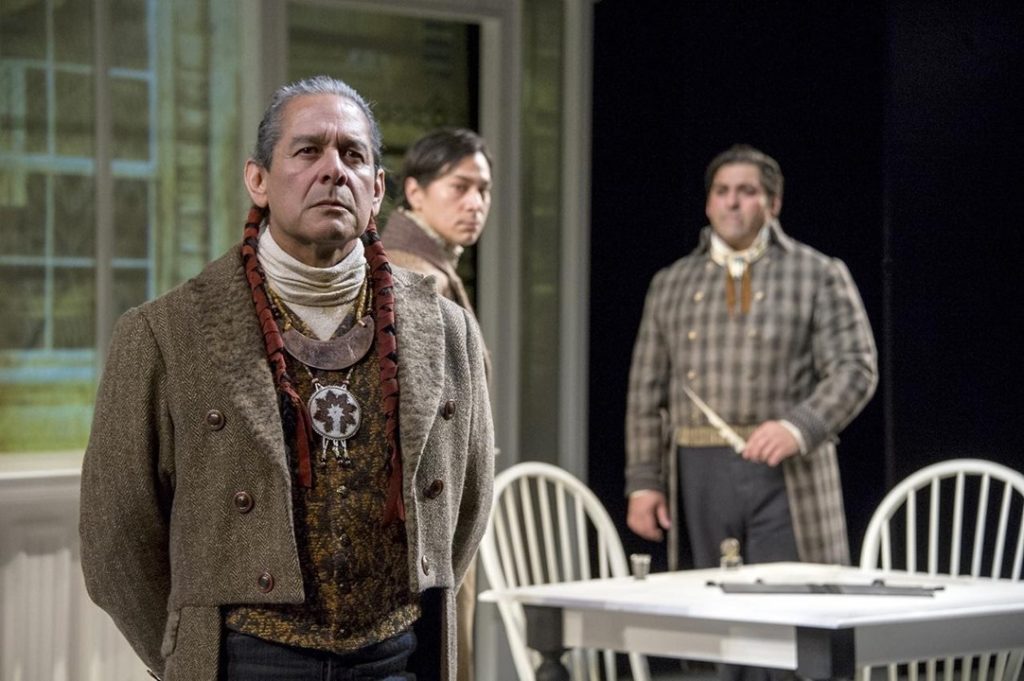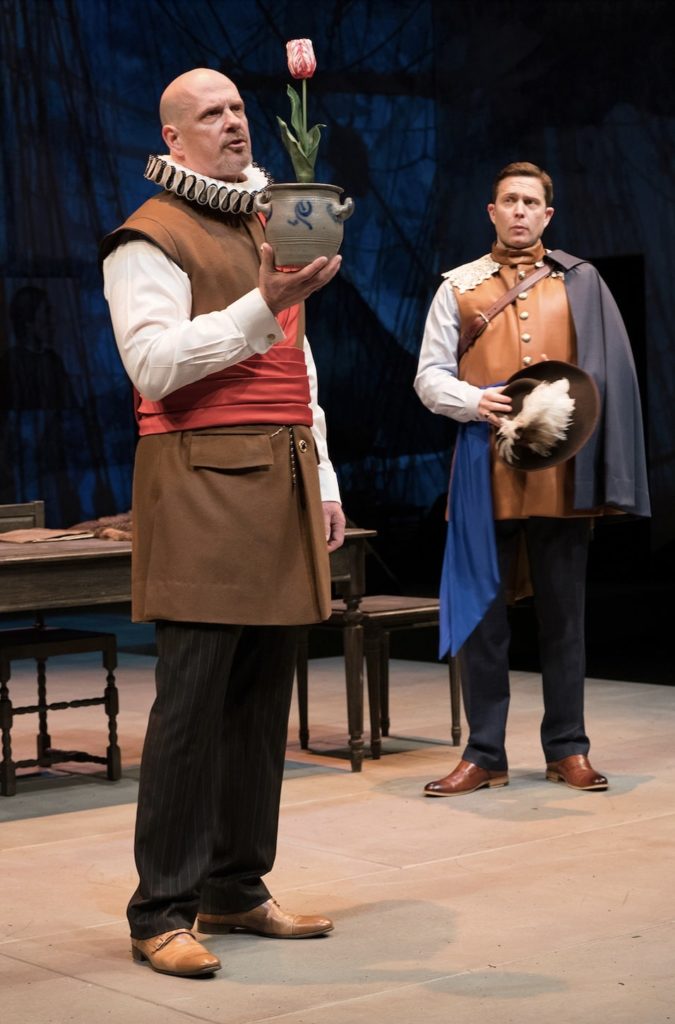
Biography
Mary Kathryn Nagle is a playwright, lawyer, and citizen of the Cherokee Nation of Oklahoma. She is a leading voice among indigenous theatre artists and the majority of her work utilizes drama and history to promote the rights and sovereignty of Native nations. Her plays include Manahatta, Sliver of a Full Moon, Sovereignty, Reclaiming One Star and Crossing Mnisose. Her work has been developed and produced, most notably at the Public Theatre, Oregon Shakespeare Festival, Arena Stage, Denver Center Theatre, Yale Repertory Theatre and the National Indigenous Women’s Resource Center. Nagle began writing plays as an undergraduate at Georgetown University where she received her B.A. peace and justice studies while simultaneously performing in and studying theatre. After her undergraduate studies, Nagle received her J.D. at Tulane University, where she studied environmental law. While clerking in federal courts and practicing at a Manhattan law firm, Nagle continued to write plays. When Wilson Pipestem, owner of the Oklahoma law film Pipestem Law P.C. which specializes in the representation of tribal governments, enterprises, and native organizations, saw a staging of Nagle’s play Waaxe’s Law (2011) produced by the National Museum of the American Indian, he invited her to join his firm. In addition to her work as a playwright, Nagle continues to work as a partner at Pipestem Law where she specializes in Indian rights law and tribal sovereignty. She has drafted numerous briefs for federal appellate courts as well as the United States Supreme Court.
Career Highlight
In 2015, Nagle accepted an offer to serve as the founding Executive Director of Yale University’s Indigenous Performing Arts Program.
Sovereignty (2015)
- Genre: Drama
- Breakdown:
- 4M Native American (Cherokee Nation)
- 2W Native American (Cherokee Nation): One character, Sarah Bird Northrup/ Flora Ridge is dual cast as both a member of the Cherokee Nation and a non-Indian
- 3M Anglo
- Synopsis:
- Sovereignty follows two Cherokee families, the Ross family and the Ridge family, across two time periods, the 1800s and the present day. In the 1800s, the play follows the conflict between the two families as they struggle to maintain the sovereignty of the Cherokee Nation, culminating in a feud that causes significant losses to both the families and the Nation as a whole. Parallel in the present day, the play also follows descendants of the families who engage in a legal battle to fight for the sovereignty of Native women over their own bodies.
- Development/Production History:
- Commissioned and produced by Arena Stage, Washington, D.C. 2018, as part of the theatre’s Power Plays cycle, which aims to stage twenty-five new works that explore the political figures and crucial moments that have formed the American experiment.
- Link to Purchase:
- Photos from production:

Photo by C. Stanley Photography.

Photo by C. Stanley Photography.

Photo by C. Stanley Photography.

Photo by C. Stanley Photography.
Manahatta (2013)
- Genre: Drama
- Breakdown:
- 3W Native American (Lenape)
- 1M Native American (Lenape)
- 3M Anglo
- Synopsis:
- Manahatta explores the historical and present day lives of the Lenape people in Manahatta and Oklahoma. The present-day narrative focuses on Jane Snake and her career at the financial firm Lehman Brothers around the 2008 mortgage crisis and the ways in which this crisis affects her and her family back in Oklahoma. In the past, the play explores 18th century Manahatta where Dutch fur traders exploit and systematically kill the Lenape people who have been living there for centuries.
- Development/Production History:
- Workshopped and staged as part of New York City Public Theater’s Public Studio performance series in May 2014 (directed by Kate Whoriskey)
- World Premiere on March 28, 2018 in the Thomas Theater as part of the Oregon Shakespeare Festival (directed by Laurie Woolery)
- East Coast Premiere on Jan. 24, 2020 in the Yale Repertory Theater (directed by Laurie Woolery)
- First student-run production on Feb. 20, 2020 by the Front Row Theatre Company at the University of Pennsylvania (directed by Connor Beard)
- For copy of play, please contact playwright’s website: https://www.niwrc.org/speakers/mary-kathryn-nagle
- Photos from production:

Photo by Jenny Graham.

Photo by Jenny Graham.

Photo by Jenny Graham.

Photo by Jenny Graham.
- Plays
- Katrina Stories (2008)
- Welcome to Chalmette (2008)
- Waaxe’s Law (2009)
- To the 7th Degree (2009)
- Manahatta (2013)
- Sliver of a Full Moon (2013)
- Miss Lead (2013)
- Fairly Traceable (2013)
- In My Father’s Eyes (2013–14)
- My Father’s Bones (2013–14)
- Diamonds… Are a Boy’s Best Friend (2013–14)
- Sovereignty (2015)
- Crossing Mnisose (2017)
- Reclaiming One Star (2020)
- Bibliography
- Derr, Holly L. “Manahatta’s Gender Flip.” HowlRound Theatre Commons, 2 Apr. 2018, howlround.com/manahattas-gender-flip.
- Marks, Peter. “Review | A New Native American Drama Meanders a Bit Uncertainly into Arena’s Spotlight.” The Washington Post, WP Company, 28 Jan. 2018, www.washingtonpost.com/goingoutguide/theater-dance/a-new-native-american-drama-meanders-a-bit-uncertainly-into-arenas-spotlight/2018/01/28/32e3f4cc-02c3-11e8-93f5-53a3a47824e8_story.html.
- Pollack-Pelzner, Daniel. “Mary Kathryn Nagle Changes the Story, in Court and Onstage.” The New Yorker, 8 Apr. 2021, www.newyorker.com/culture/persons-of-interest/mary-kathryn-nagle-changes-the-story-in-court-and-onstage.
- Wren, Celia. “Law of Nations.” American Theatre, 20 Mar. 2018, www.americantheatre.org/2018/03/20/law-of-nations/.
- Web Resources
Reflection on Contribution to Anti-Racist Theatre
Mary Kathryn Nagle contributes to anti-racist theatre through her complex rendering of Indigenous communities past and present. A common tool utilized in many of Nagle’s works is the telling of parallel stories across history. In both Sovereignty and Manahatta, Nagle utilizes this technique to demonstrate the complicated ways in which the history of violence, discrimination, and racism in the U.S. has affected many Native American communities. This unique storytelling style works as anti-racist theatre in two distinct ways. First, it serves to educate its audience on the truthful, yet repressed history of Indigenous communities in America. Many audience members may find themselves learning history that they never have known before and Nagle takes extreme care to tell the most historically truthful version she can while also creating a compelling story. Secondly, this storytelling technique is anti-racist because it portrays the Native American characters as real, complex human beings. To combat stereotypes, Nagle presents her characters as fully realized individuals, who confront injustice, guilt, strife, and love. Nagle’s retelling of history refuses to stereotype or tokenize the Native characters. Instead, she embraces the communities she writes about and presents a picture of what it means to be a member of these Native American communities, in the past and in the present.
Compiled by Liam Moore, Political Science and FTT Major, 2022